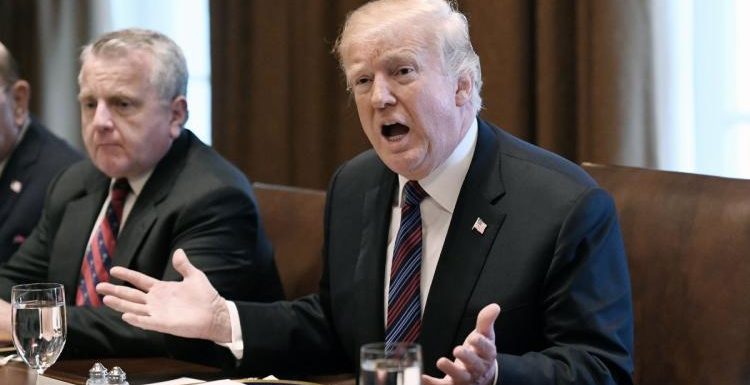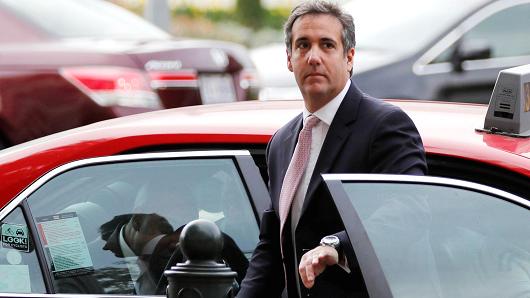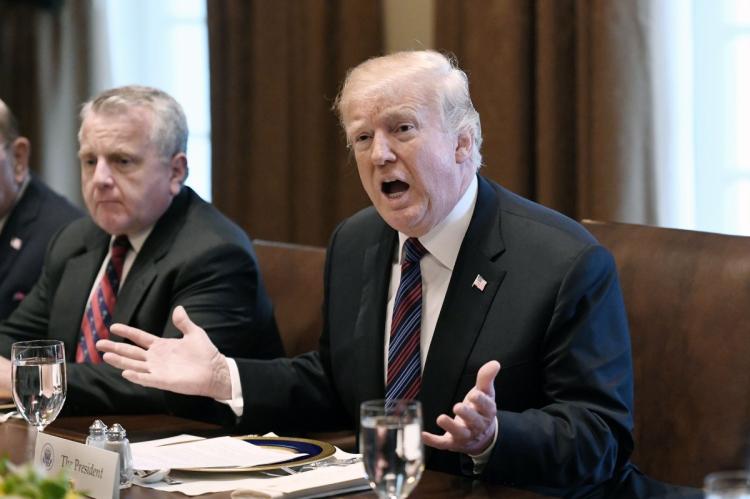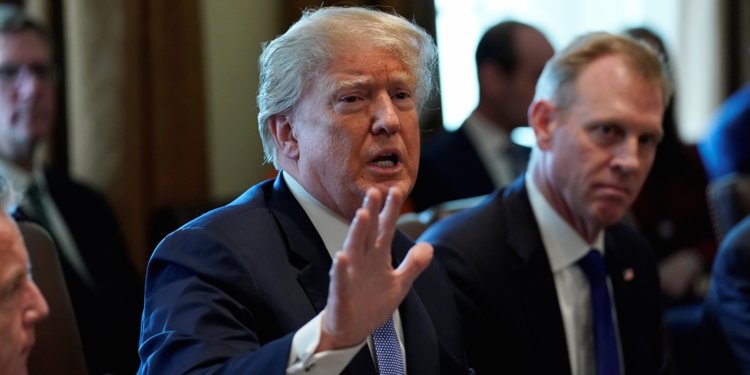
 ON THE morning of April 10th, a day after the FBI raided the office and home of his personal lawyer, Michael Cohen, President Donald Trump declared on Twitter: “Attorney-client privilege is dead!” Moments later he tweeted, “A TOTAL WITCH HUNT!!!” The attorney-client privilege means that a client can speak candidly, providing his lawyer with information necessary to develop an effective legal strategy. Even an admission of having committed a crime in the past must be kept in confidence. How then did the FBI secure a warrant to raid Michael Cohen’s papers?
ON THE morning of April 10th, a day after the FBI raided the office and home of his personal lawyer, Michael Cohen, President Donald Trump declared on Twitter: “Attorney-client privilege is dead!” Moments later he tweeted, “A TOTAL WITCH HUNT!!!” The attorney-client privilege means that a client can speak candidly, providing his lawyer with information necessary to develop an effective legal strategy. Even an admission of having committed a crime in the past must be kept in confidence. How then did the FBI secure a warrant to raid Michael Cohen’s papers?
The news that the FBI raided the offices of President Trump’s personal attorney Michael Cohen Monday caused many people to wonder how such a raid could be justified given the protections afforded under attorney-client privilege.
But former U.S. attorney and deputy assistant attorney general Harry Litman said the way the FBI handled the raid actually showed the seriousness with which the Department of Justice treats material that might be protected by attorney-client privilege.
Ms Clifford said she received the money just before the 2016 presidential election in exchange for staying quiet about a sexual tryst she claims to have had with Mr Trump. Both Mr Cohen and Mr Trump have said the affair never happened, but Mr Cohen acknowledges paying Ms Daniels the $130,000 from his personal account. When asked last week why his lawyer had paid Ms Clifford the six-figure sum, Mr Trump denied knowing anything about it.
The FBI would not have been able to conduct the raid based on a mere hunch that Mr Cohen was engaged in a plot with Mr Trump or his aides. In order to secure the search warrant, the lawyers at the US attorney’s office for the southern district of New York—which received the tip from Robert Mueller, the special counsel investigating possible connections between Mr Trump’s campaign and Russia—had to persuade a magistrate judge that a less dramatic plan to access Mr Cohen’s files would be unlikely to work.
Ordinarily, prosecutors use the subpoena power to elicit evidence. But where suspicion of wrongdoing is strong, and there is cause to worry that evidence may be withheld, tampered with or destroyed, a judge may approve more aggressive action. Ken White, a former assistant US attorney wrote that this is “a very fraught and extraordinary move” that could not have happened without “multiple levels of authorisation within the Department of Justice”.
In Mr Trump’s estimation, the FBI raid on his “fixer” lawyer was “disgraceful” and “an attack on our country”. But government lawyers, a judge and Rod Rosenstein, the deputy attorney-general, who allowed Mr Mueller to pass his discoveries about Mr Cohen to the US attorney, clearly believed that the raid was necessary. The FBI is now going through Mr Cohen’s papers. 

